Why doesn’t the cost of rental cars stop rising?
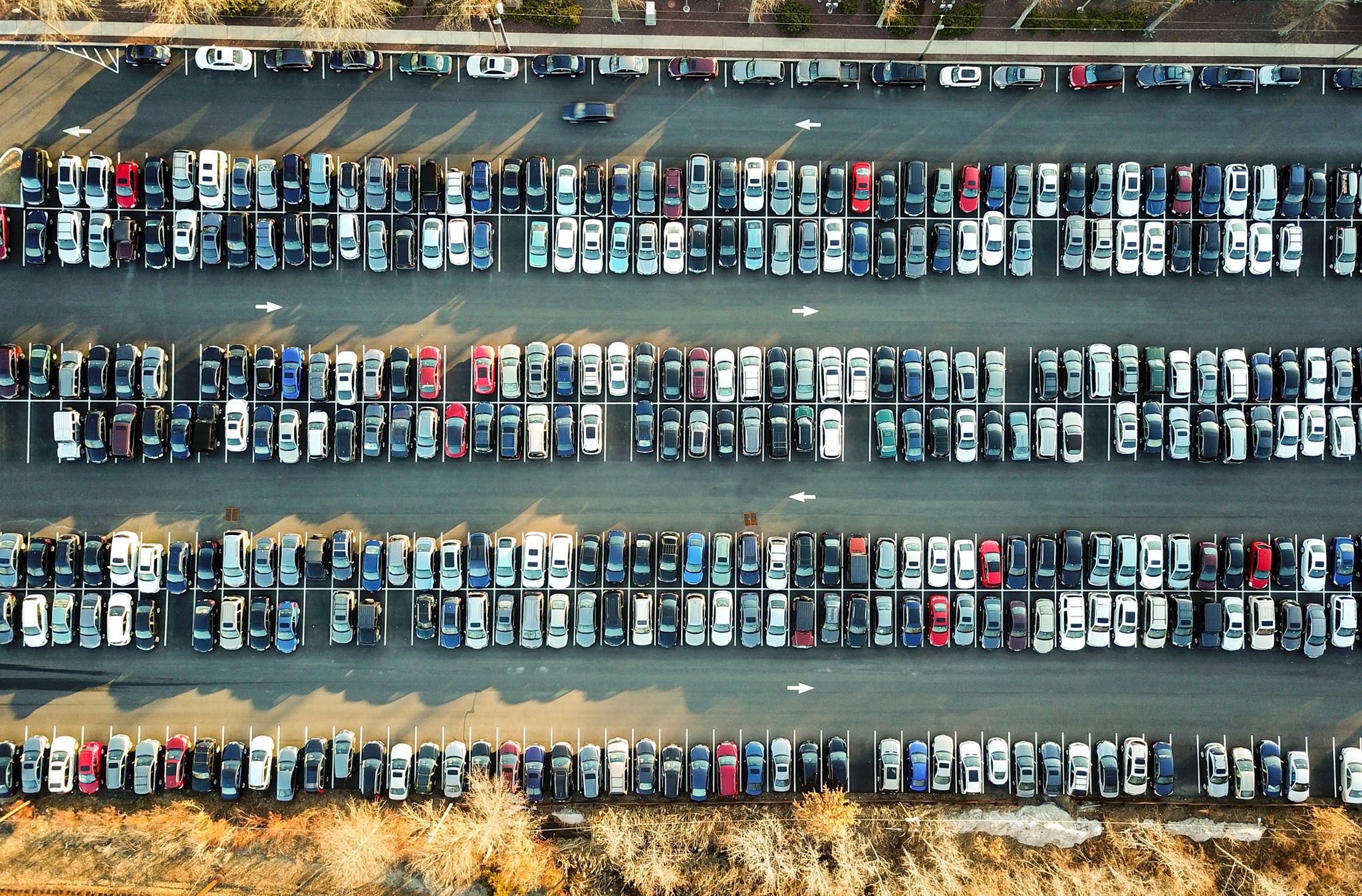
For over a year, the cost of rental cars has continued to rise. What are the reasons?
There is a trend that knows no reversals: it is that of the increase in the cost of rental cars, which has risen dramatically immediately after the pandemic and continues to grow even in 2022. And given that more and more Italians are resorting to it, also driven by the expensive gasoline, especially in view of austerity holidays (there are many who travel by plane or train, only to rent a car to move freely once they arrive at their destination), it is interesting to try to understand the scope of this phenomenon.
WHAT THE STRATEGIC INCREASE IN THE COST OF RENTAL CARS TELLS
The increase in the cost of rental cars, it was anticipated, is not exactly new. Sifting through a Federconsumatori report from last year, for example, it was noted that the price hike was strategic: the rental of a medium-sized petrol sedan in June, without additional insurance and ancillary costs, required around 380 euros. For the same car, in the central week of July, about 737 euros were needed, with an increase of + 84% compared to June. Finally, immediately after mid-August, in the week from 16 to 22, the rental cost amounted on average to 707 euros, plus 77% on June.
The study made it possible to observe higher price increases than in June in strategic areas in which tourists often rely on a rental car: around the stations of Milano Centrale, Turin and Naples airport in July (with increases reaching + 310%), with increases from + 45% to + 227% if you rent the car in the middle week of August.
WHY DO PRICES CHANGE SO OFTEN?
According to market players , tariffs change rapidly when everything is fine and the situation is normal because demand increases or decreases. The companies – they explain – want to rent as many cars as possible, so if they have fewer cars booked than expected, they could lower their prices to attract customers while if they receive more bookings than expected, they could instead increase them to maximize profits.
ALL THE CHIP'S FAULT?
However, this is only valid in ordinary situations: that prices are linked to the fluctuation of supply and demand, after all, is the ABC of the economy. The period we are experiencing, however, has exceptional implications. Giuseppe Benincasa , general manager of Aniasa , National Association of the Car Rental, Sharing Mobility and Automotive Digital Industry, in an interview with La Nuova Sardegna , the region that most of all had had to deal with so much higher prices last year. drastic, he argued that the problem did not concern only the island, but concerned the car market because “There are no cars to buy. It's all related to the chip crisis. The auto industry is now grappling with an unanticipated global shortage of chips, which has forced manufacturers to plan temporary plant closures, canceling or rescheduling production of cars and vans in many cases. The shortage of semiconductors continues and a return to normal is not expected. To this problem is added that of the energy transition ".
THE COLLAPSE OF REGISTRATIONS
Indeed, comparing the numbers on registrations collected from the latest Aniasa report , published last May, compared to 2019 over 106,000 new number plates were lost, which went from 482,000 units (cars and commercial vehicles) to 376,000 in 2021, for a value total of 2.6 billion euros, even if the fleet of rental vehicles remains stable over one million units, which have traveled over 27 billion kilometers.
We note the replacement of old vehicles with plug-in hybrids (47% of the total market, with a + 155% year on year) and electric (30%, + 58%), an average value higher than the market. To weigh, according to the Association, the perfect storm that hit the entire automotive sector: the pandemic, the crisis of car chips and, lastly, the conflict in Ukraine, guilty of having "slowed the advance of rental mobility and sharing in our country ".
WHAT HAPPENED IN 2021
At least the first half of 2021 forced the sector to deal with the aftermath of the pandemic, given the strong reduction in city mobility and the use of teleworking in a structural way. In this period, car rental contracted by 57% compared to the pre-pandemic (from 13 to 5.5 million), compared to a fleet that today can count on 6,200 cars (they were almost 8,000 in 2019).
Long-term is the only channel to consolidate the turnover, with a total turnover of almost 8.8 billion euros (+ 12% on 2020), and to grow in the managed fleet (+ 5%, for the first time over one million vehicles) thanks to the use of the extension of contracts for companies. The private rental branch (with tax code only) also did well, reaching 100,000 contracts, with + 55% compared to 2020, a number that rises to 150,000 units also considering private individuals with VAT numbers.
In the first quarter of 2022, on the other hand, short-term rentals showed a slight recovery compared to last year, although all the indicators recorded negative compared to the pre-pandemic period: i.e. the turnover, at -4%, the number of rentals, at -22%, rental days, at -2%, and, above all, registrations, at -70%.
Long-term turnover, on the other hand, increased by 9% in the first quarter, thanks to a fleet that grew by 7%, albeit with registrations down again (-8%). In the same period, the Association underline, car sharing recorded an encouraging growth in rentals (+ 50%) compared to the first quarter of 2021 which bodes well for the rest of the year.

THE COST OF CAR RENTAL CONTINUES TO GROW
The fact remains that, even in 2022, especially in conjunction with the summer, we are again witnessing a surge in prices, which this time, thanks to the increases of 12 months ago, however, start from a much higher base.
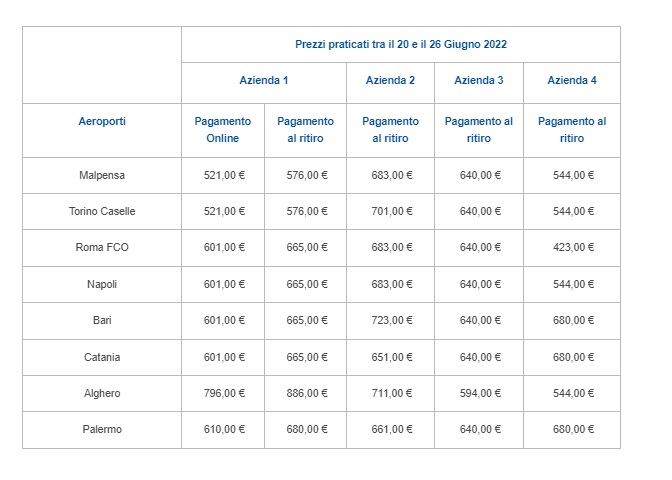
The ONF – National Observatory Federconsumatori, has already made some simulations, discovering that, in the week from 20 to 26 June, the rental of a car (medium-sized petrol car) without additional insurance and accessories costs 634.52 euros. , which is 67% more than the price recorded in the same week of June 2021.
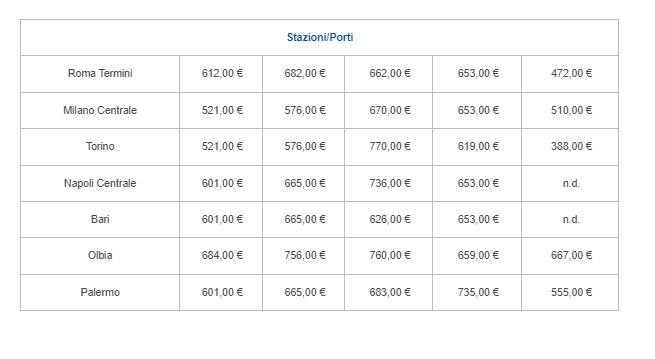
Looking at the data in detail, it emerges that the highest costs are applied to Bari, Palermo, Catania, Olbia and Alghero, while the greatest increases are once again at the stations and airports of Milan, Turin, Rome and Naples (with increases even by 100% compared to June 2021). And then there are also those who complain that digitization, in the rental car service, is actually a chimera …
In Rome Termini, the Car Rental service is nailed to operational processes of the mid-twentieth century. Despite digital onboarding and pre-registered and pre-billed payment systems, they still require tons of paper and all the paperwork.
They will never make it. pic.twitter.com/FUDu2rgofu– CA Carnevale-Maffè (@carloalberto) May 31, 2022
WHICH ARE THE EU CITIES WHERE TO RENT A CAR COST MORE
And since summer holidays are just around the corner, it may be useful to conclude with a cost comparison in Europe. The data on the subject are not many, but according to the British site Uswitch which compared average rent-a-car prices among 25 European capitals, the cheapest, last year, was Moscow, with an average daily price of 29.73 euros, followed by Brussels (30.07 euros) and Prague (33.26 euros). Wooden medal for Warsaw (33.98 euros) followed, surprisingly, by Paris (35.11 euros). Four other Eastern cities closed the top ten, Kiev (€ 36.32), Tirana (€ 38.14), Bratislava (€ 38.9) and Tallin (€ 40.76), while Madrid (€ 37.39) ) took seventh place.
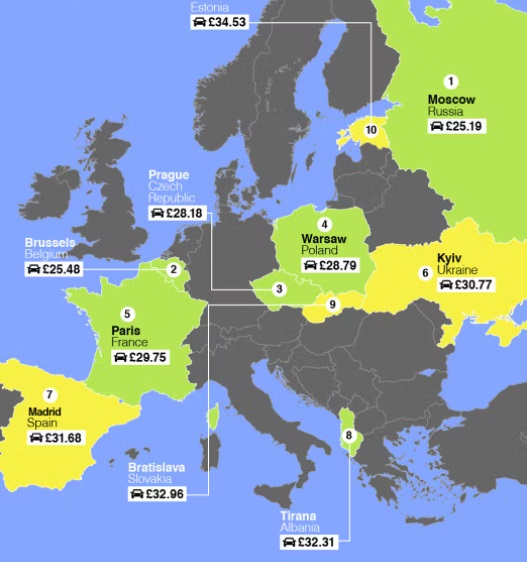
Rome did not excel at all, finishing in 19th place, with a daily cost of 61.78 euros. Ljubljana, with 94.66 euros per day – costs twice as high as those of Paris or London (46.43 euros per day) – was the most expensive capital for car rental. Better to opt for public transport or your own car also in Vienna (81.55 euros per day), Copenhagen (75.88 euros), Helsinki (68.90 euros) and Bern (66.02 euros).
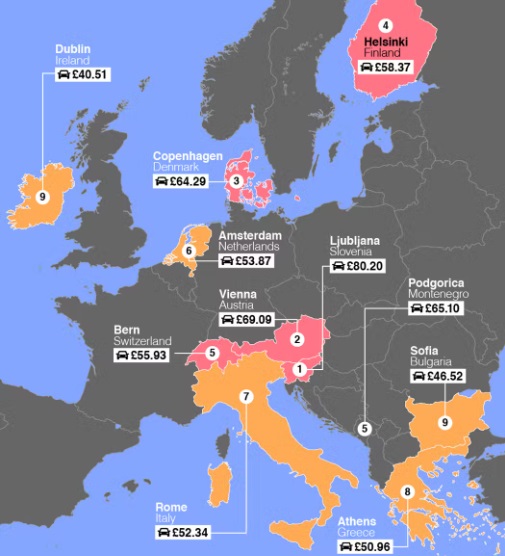
This is a machine translation from Italian language of a post published on Start Magazine at the URL https://www.startmag.it/economia-on-demand/perche-non-smette-di-crescere-il-costo-delle-auto-a-noleggio/ on Sat, 04 Jun 2022 06:30:53 +0000.
